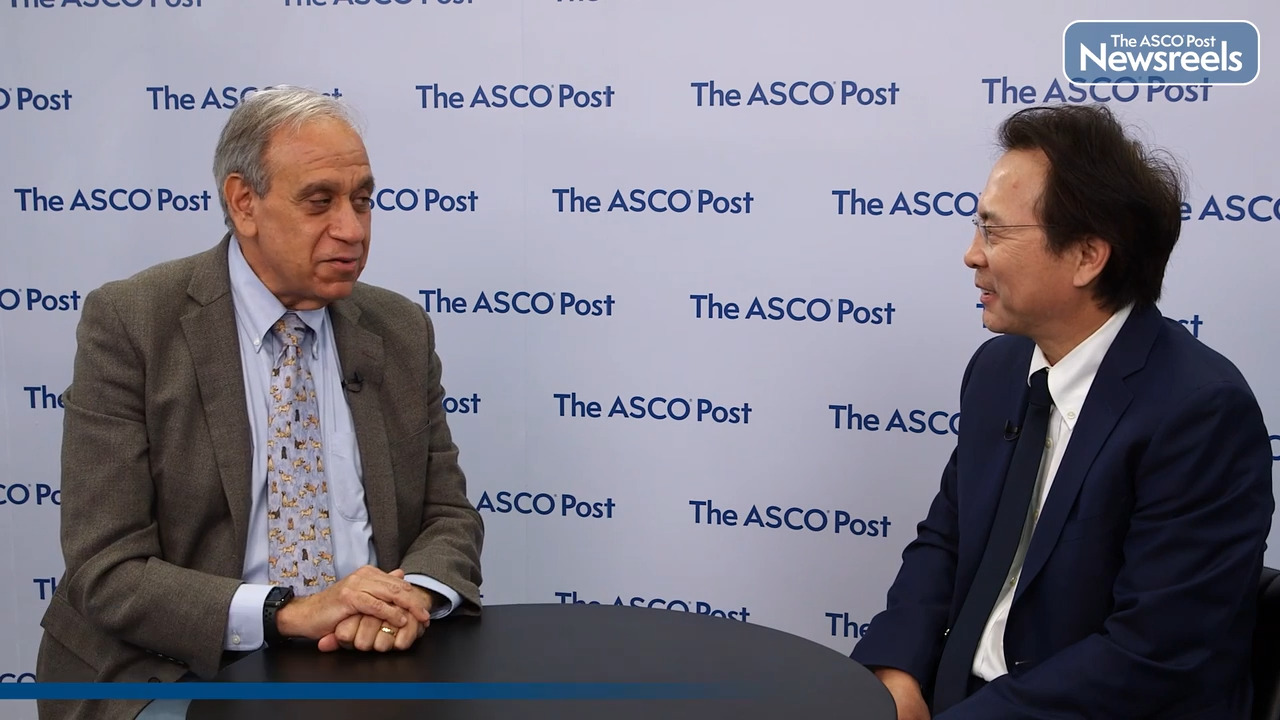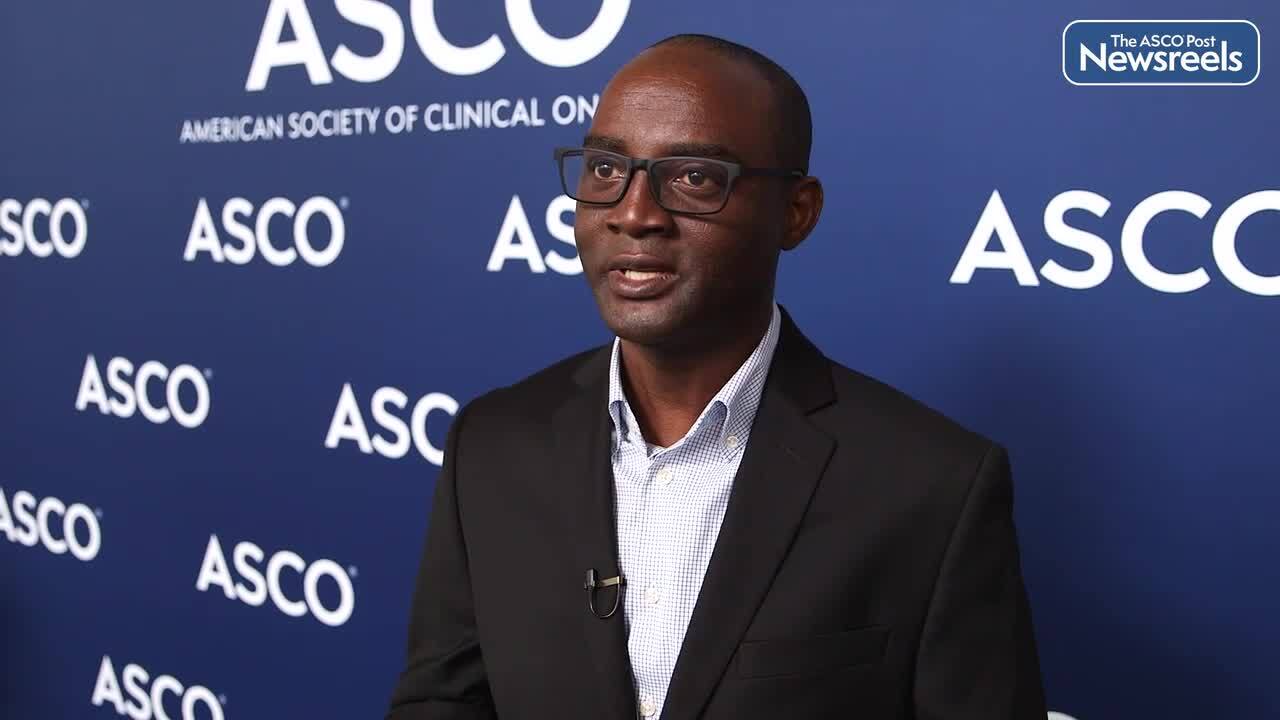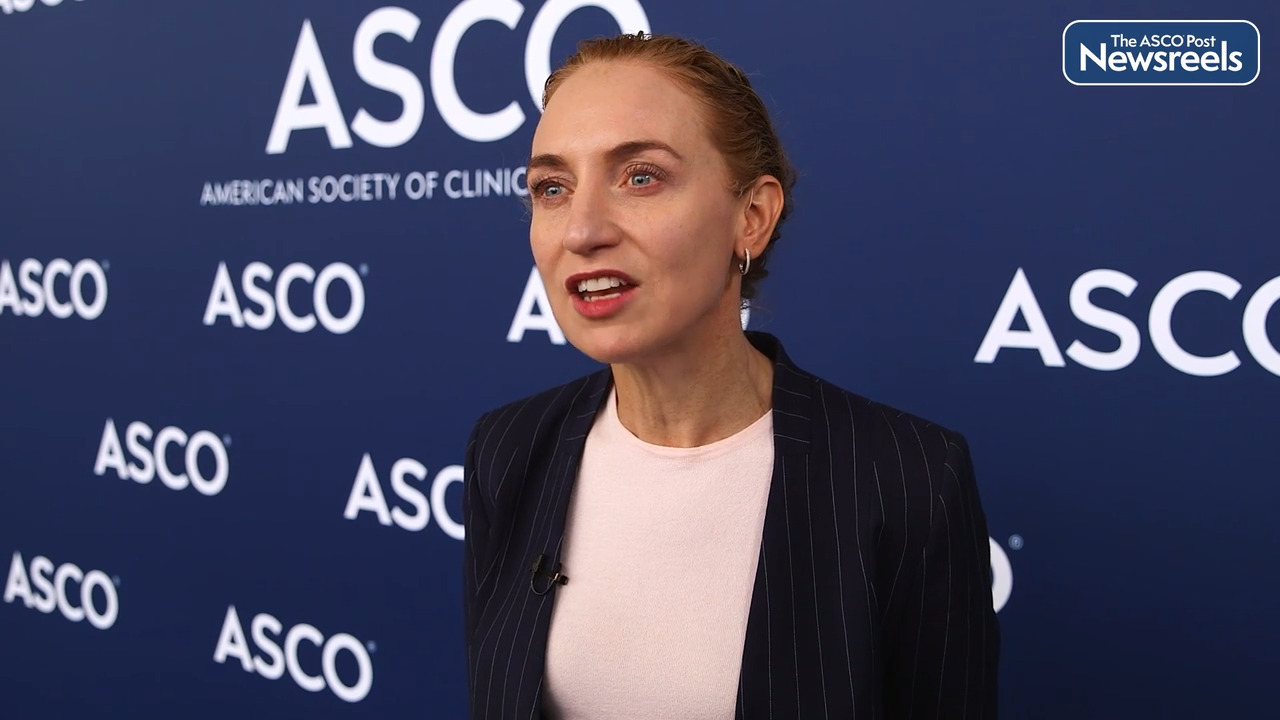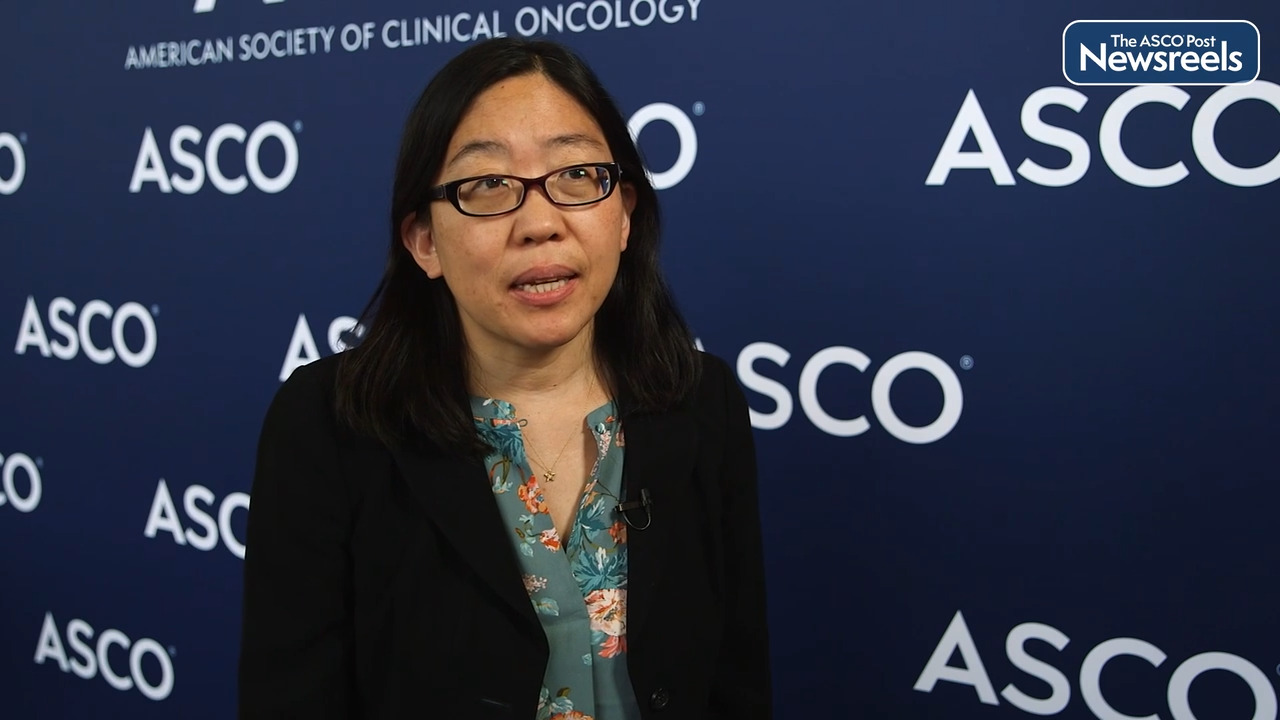Transcript
Disclaimer: This video transcript has not been proofread or edited and may contain errors.
Thomas Powles: Jonathan, I'm super excited. We're here together and we are talking about EV-301. We were both involved in the study, along with a number of other people around the world. Huge global effort to get an antibody-drug conjugate into our patients. Do you want to talk a bit about the day you presented here?
Jonathan Rosenberg: That would be great. Thanks Tom. Yeah, it really was an enormous community effort to get this over the finish line into full approval in the United States and available in Europe now. The EV-301 study was randomized phase III trial comparing salvage chemotherapy, although I hate the term salvage. Docetaxel, paclitaxel, vinflunine versus enfortumab vedotin showed that in enfortumab vedotin led to superior progression-free survival and overall survival. It was published last year in The New England Journal of Medicine. Here we present the 24-month update, the long-term follow-up. The way the study was designed, the interim analysis actually became the final analysis that was what was initially published. This is the 24-month analysis showing long-term effects of EV in this patient population. What we were able to show is that the toxicity profile really didn't seem any different between the primary analysis and the late analysis. A few more events of rash, but really otherwise not really a substantial difference from what was initially presented.
Jonathan Rosenberg: It really shows that the results at their first analysis are maintained at the second analysis. The overall survival was over 12 months in patients receiving enfortumab in the third line setting compared to about nine months, eight months in the patients receiving chemotherapy with a hazard ratio of .0. Similar PFS advantage that's maintained. What I find fascinating is that there was a 10% improvement in two-year survival for patients receiving enfortumab from 19% to 29%. While that's not nearly high enough a number for what we'd like, it is a huge sea change from what we saw in the past.
Thomas Powles: Jonathan, there was a real consistency with this data set and the previous data set underlining the continued benefit. Does that surprise you? Some cases there's sometimes a drift in with time and things come back to normal.
Jonathan Rosenberg: It doesn't surprise me. I think we've seen this with the EV program where we've seen EV-101 had a response rate of 44%. EV-201 about the same number. EV-301 about the same number down to 40%. The PFS and OS have been remarkably similar across the trials. Now the long-term data also look very similar even to the shorter term data that we have.
Thomas Powles: Immunotherapy is a bit of a slow burner and a bit unpredictable. Some patients do actually well over a period of months, but actually for many patients, the cancer grows through. Is EV the same as that or...
Jonathan Rosenberg: Most patients appear to get benefit initially.
Thomas Powles: Good early responses.
Jonathan Rosenberg: Good early responses. Powerful palliative benefit. I've seen patients have Lazarus like responses where they're debilitated from pain or performance status.
Thomas Powles: [inaudible 00:02:58]
Jonathan Rosenberg: Yeah, exactly. Ready to come back to life, enjoy life, live life. There are unfortunately a very small proportion of patients who have catastrophic skin reactions. They happened in the first month or so. It's really probably about-
Thomas Powles: How'd you manage those?
Jonathan Rosenberg: ... 1% percent. Number one, don't give more drug if you have a sense that's happening, right? Stop.
Thomas Powles: You're giving almost every week. You're seeing early rash in the first eight weeks, stop the therapy and watch.
Jonathan Rosenberg: I worry that not everyone sees their patients every week during the first cycle. I would encourage physicians...
Thomas Powles: I agree with that.
Jonathan Rosenberg: To see patients day 1, 8 and 15.
Thomas Powles: That might be the most important thing we say today.
Jonathan Rosenberg: Right. Exactly. See the patients look at their skin, talk to them. If you see blistering, stop. If you see very extensive rash, stop. Make friends with the dermatologist. That's the biggest piece of advice as well. Moisturizing, topical corticosteroids. It's really critical to recognize those because when they happen, patient's die.
Thomas Powles: What you can do is you can control the rash. Many of those patients that have that rash are responding anyway.
Jonathan Rosenberg: Right.
Thomas Powles: That doesn't mean you've got to stop the drug. It doesn't mean the cancer is going to bounce back. Some patients said to me, "Oh no, I really don't want to stop because we only have the first scan result.
Jonathan Rosenberg: Right.
Thomas Powles: Actually the issue is that their skin rash is probably reflecting that the cancer's doing well too and you can actually have some time off therapy. You don't have to push this drug through.
Jonathan Rosenberg: Right. That's an important note. It's relevant also when you're thinking about one of the later side effects, peripheral neuropathy which is an unfortunately a common side effect. I tell patients the price of success. You've been on it long enough to get peripheral neuropathy. If the patient is responding, my experience has been that it's a very durable response. Then you can actually take them off treatment for months on end. The neuropathy slowly improves. Patients have good quality of life. Their taste comes back. They can enjoy food again and just monitor them with scans every two to three months. You can resume therapy if their toxicity improves.
Thomas Powles: It is the most active drug you've seen that you've tried in.
Jonathan Rosenberg: It is. It is about as active I think. It may be probably more active than gemcitabine and cisplatin in my opinion, in many ways.
Thomas Powles: Now, rumor has it, Jonathan, you might be involved in the combination of EV plus pembrolizumab. Is that correct?
Jonathan Rosenberg: Yeah, that is correct. That's data that was reported a couple of years ago in cohort A of EV-103, which is a multi cohort study. That cohort tested pembrolizumab and enfortumab vedotin combination of 45 patients and showed that the response rate was 73%, which is something we really haven't seen in bladder cancer ever. Then time [inaudible 00:05:21] looking at disease free and overall survival were about double what you might expect in patients receiving carboplatin-based therapy in this patient population because these are cisplatin ineligible patients. Really potentially transformative treatment. Toxicity appears more additive than synergistic, which is nice. You don't see new unusual things. You don't see with either drug by itself. Although, sometimes the rash gets a little tricky because you don't know which drug it's from.
Thomas Powles: You stop both?
Jonathan Rosenberg: I stop both initially-
Thomas Powles: You get steroids.
Jonathan Rosenberg: ... then if I think it's... I actually send them to a dermatologist and try to get them to biopsy then because you can sometimes tell the difference.
Thomas Powles: Yeah, but not everyone has that [inaudible 00:05:59].
Jonathan Rosenberg: Not everyone has that. Often stop its topical steroids or oral steroids. With the oral steroids you do have to watch out for hyperglycemia, which is another rare side effect. You can keep on top of that couple of percent of patients can get very serious hyperglycemia. About 10% I think of patients get some degree of hyperglycemia from the drug. When they're on steroids, you got to just keep an eye on things.
Thomas Powles: EV-302 is a study comparing chemotherapy Pembro plus EV, it's a study that's ongoing. We hope we're enrolling. We hope to finish and change global practice. There's also other data that potentially's coming out in the future as well in the combination. Do you want to just talk really before...?
Jonathan Rosenberg: There's a randomized phase II cohort of EV-103 called cohort K, which is enrolling cisplatin ineligible metastatic urothelial cancer patients. They're randomized to either get EV alone or EV plus Pembro. That data I'm hoping will be coming to a conference near you. The idea behind that is to support... Literally near you. The idea behind that data is to support the accelerated approval in the United States of enfortumab and Pembro is a combination to really demonstrate how much of it is EV, how much of it is Pembro. We'll see what that shows. It might be that EV is even better drug than we think. We have data in the third line setting that it's a 40% response rate. In the second line setting, it's a 50% response rate. What is it going to be in the first line something as monotherapy [inaudible 00:07:18] who knows?
Thomas Powles: There's neoadjuvant combination trials as well. We haven't got time to talk about the whole package, but it looks like this drug is going to pay a big footprint in the treatment of our patients in near future. Thanks so much, Jonathan. It's always lovely to see you and see you very soon.
Jonathan Rosenberg: Very good. Thank you.





